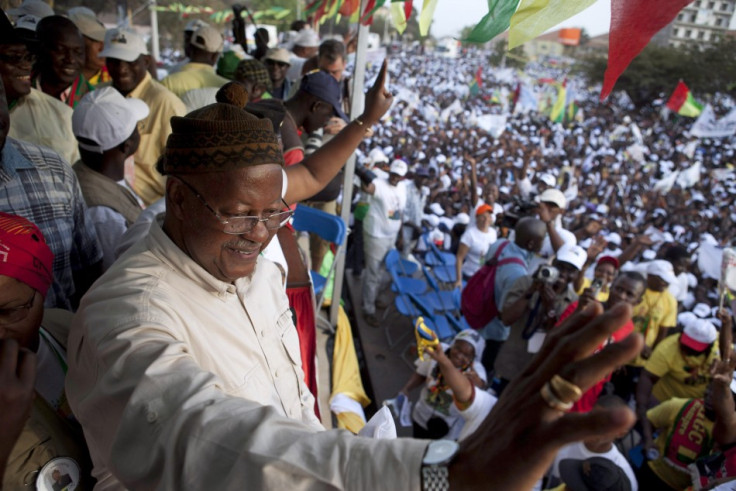Guinea-Bissau: Soldiers Seize Prime Minister Carlos Gomes in Coup

Soldiers have arrested Prime Minister Carlos Gomes Jr of Guinea-Bissau, hours after the leader's home was attacked with grenades in the former Portuguese colony, which in recent years has become a 'narco-state'.
The attacks that rocked the capital of the tiny country known for cocaine trafficking came just two weeks before Gomes was to take part in a presidential runoff election as the frontrunner.
Gomes had been favoured to win the 29 April runoff after his challenger Kumba Yala, a former president who was overthrown in a 2003 coup, said he would boycott the vote because of irregularities in the first round of balloting.
The Portuguese foreign ministry urged "the masterminds of the military coup to respect the well-being of the Guinean democratic authorities and free those who have been detained".
Guinea-Bissau has one of the lowest GDPs in the world with most of its 1.6m population surviving on $500 (£315) per annum. It has been targeted by drug gangs looking to tran-ship cocaine and other drugs from South America to the lucrative European markets.
A multitude of small offshore islands and a military able to sidestep the government with impunity has made it an ideal location, said crime experts. Plane drops are made on or near the islands and speedboats pick up bales to go direct to Europe or onshore. Air force head Ibraima Papa Camara and former navy chief Jose Americo Bubo Na Tchuto have been named "drug kingpins".
In Bissau, an unidentified military commander claimed that Gomes was going to allow troops from Angola, another former Portuguese colony in Africa, to attack military forces in Guinea-Bissau.
Resident Edmond Ajoye, an employee of a Dutch NGO, said he was around three miles (5km) from his home when the shooting began.
"There was panic. Women were running," he said. "There were rockets being launched and the soldiers were shooting with guns mounted on their trucks."
"The soldiers took downtown," he continued. "The shooting lasted from 7pm until 9pm. They then went from embassy to embassy to make sure that the politicians couldn't seek refuge there."
The first round of Guinea-Bissau's presidential election was marred hours after polls closed by the murder of the former chief of intelligence by gunmen near his home.
The unrest in the country started just three weeks after mutinous soldiers overthrew Amadou Toumani Touré, the democratically elected president of Mali, just a few hundred miles to the east. The junta leader has handed over power to an interim civilian president, Dioncounda Traore.
© Copyright IBTimes 2025. All rights reserved.






















